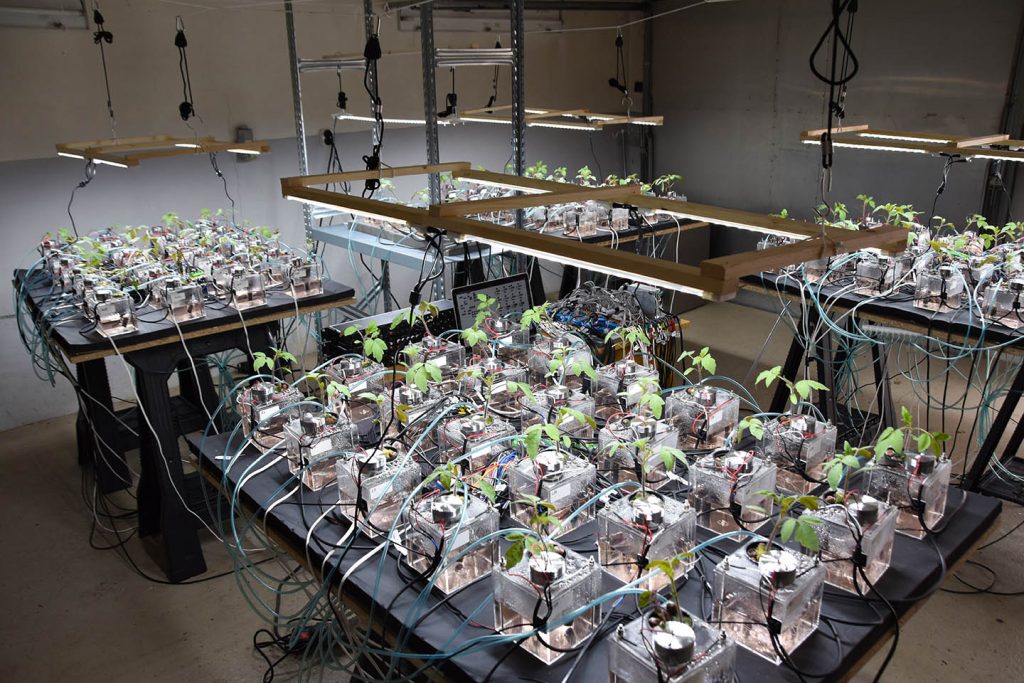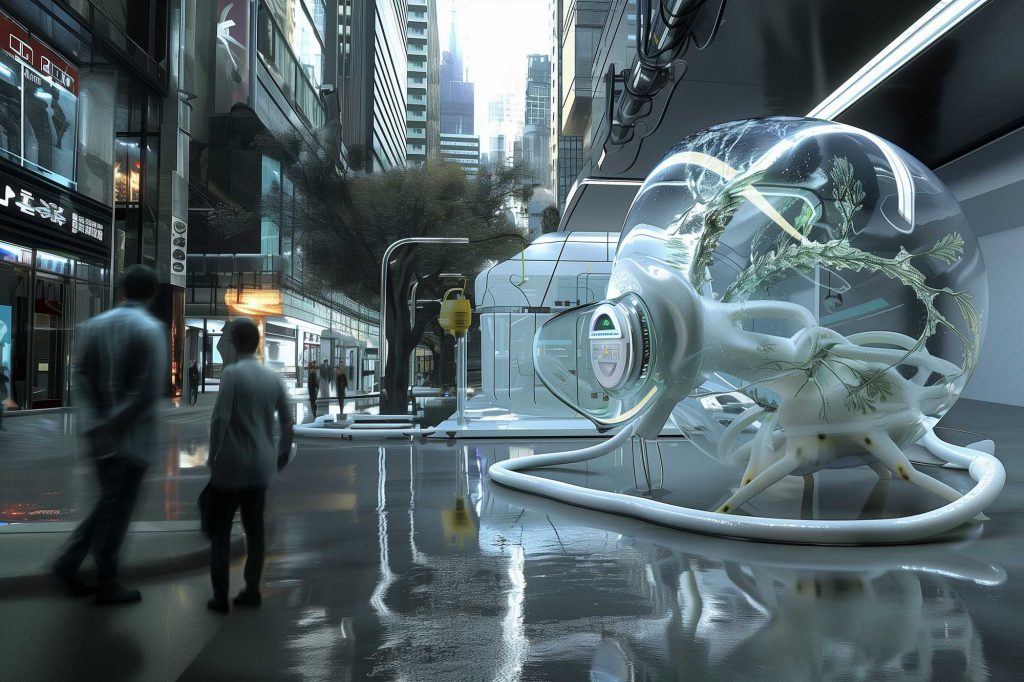HUNGRY ECOCITIES : Humanizing Technology Experiments
+ ACOUSTIC AGRICULTURE
Orchestrating urban harmony through Plant-AI synergy
The transducer plant hydroponic growth box is a new process to study the effects of sounds on plants at scale in a controlled setting. It is a setup of 100 individual boxes, each prepared with their own transducer, connected to a central system which orchestrates which plants are exposed to which sounds. The box contains sensors to measure the effects of the sounds on the plant health, nutrient uptake and growth.
INNOVATION RELEVANCE
The field of understanding the effects of urban environmental sounds on plant health and growth is a new and developing area of research. It has become clear that the relationships between urban sounds and plant health are complex and that more studies are needed to fully understand this. We do know that sound vibrations can influence plants, and that different frequencies and intensities have varying impacts. These impacts can be: changes in gene expression, growth rate alterations, pollination effects, stress responses. Since urban food production and urban farming practices are gaining in popularity as a strategy for food system transition – local/ urban food production – the topic of sound exposure and their effects is also increasingly relevant to understand how we can sustainably grow crops in urban areas.
The field is young and therefore mostly scientific. The focus of this project was to contribute to the ways in which sound effects can be studied for understanding. The system of transducer plant growth boxes, connected to an evolutionary AI model which tries to train on the plant responses to sound vibrations is a new process to study this topic. In that sense, the project is focused on contributing to science primarily.

WHAT DOES IT DO
It is a system of 100 individual hydroponic growth boxes for plants which is collecting data and training a custom AI model based on autoencoder architecture and evolutionary algorithms. This involves tracking nutrient consumption in real-time and measuring biomass and photosynthetic efficiency to understand how different sound patterns impact plant growth. The system is located at Mendel University in Brno.
ART RELEVANCE
Helena Nikonole ‘s “Acoustic Agriculture“, reimagines urban noise as a catalyst for plant growth. This installation features 100 hydroponic boxes, each a stage where AI-composed soundscapes nurture plants through vibrational speakers. Fed with urban clamour, nature’s melodies, and scientific stimuli, the AI creates a new language of growth. As plants respond, their feedback evolves the AI’s compositions, blurring lines between technology and nature. More than an experiment, it’s a philosophical inquiry into interspecies communication and a prototype for future urban ecology. “Acoustic Agriculture” envisions cities where every sound contributes to sustainability, challenging us to hear urban cacophony as potential harmony.
TEAM
Artist: Helena Nikonole
Studio: CRA
Art-driven innovation: In4Art
Science: Mendel University in Brno

The HungryEcoCities project has received funding from the European Union’s Horizon Europe research and innovation programme under grant agreement 101069990.
